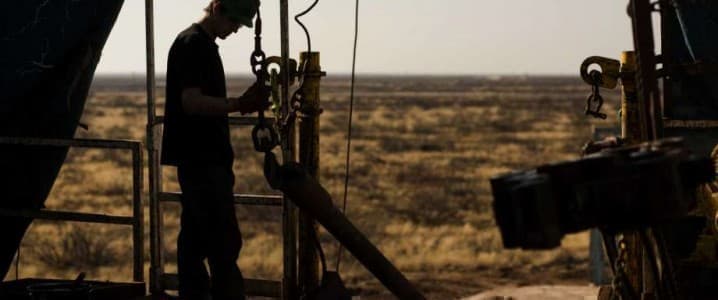Since years before the unexpected blow of the novel coronavirus pandemic, U.S. shale has been in a state of serious decline. Diminishing returns from aging wells turned the gush of the shale revolution into a trickling death march for the struggling sector. And then came the coup de grace: Black April. After the spread of COVID-19 swept the rug out from underneath global oil demand, the leading OPEC+ members of Saudi Arabia and Russia got into a spat over how to respond to the problem which developed into an all-out oil price war. The ensuing global oil glut is what ultimately dealt the death blow to the U.S. shale market when it made owning oil a liability and drove the West Texas Intermediate, which had never gone negative before, to a stunning minus $37.63 a barrel.
The effects in the Permian Basin have been lasting and devastating. The shale sector needed a major rebound in oil demand and prices to bring all of its shut-in wells back up and running and rehire all of its fired and furloughed employees, but the pandemic persists and oil was already well on its way out. Now, peak oil is suddenly upon us and the global energy transition toward cleaner, more climate-friendly fuel and energy alternatives is well underway.
As the end of the shale oil and gas era has become increasingly more difficult to deny, even the most veteran fossil fuel leaders have been fleeing the sector. First the oilfield services giant Halliburton said that they would bail on shale back in July, when it told its investors that it will be taking a ‘fundamentally different course’ after slashing its ranks of employees and cutting dividends on the tails of its third straight quarterly loss in January of this year–before the pandemic had even had a chance to wreak its havoc. This move was followed by the exodus of a slew of other oilfield services companies, a sweeping phenomenon which Oilprice reported on back in August. Related: Big Oil’s Renewables Push Will Come At A Cost
Recent think pieces have suggested that the most promising future for the U.S. shale patch will have nothing to do with shale oil or gas, but with clean energy. Some have advocated for solar while others have advocated for green hydrogen and ammonia energy storage. The suggestion that renewables and green energy could be the economic salvation for Texas, even more so than the stalwart fossil fuels industry that the state has relied on for so long, is supported by swaths of data that find green energy will be an increasingly significant jobs creator going forward.
Back in June PV Tech reported on “a raft of new studies” which has “come to underscore the business case of pushing renewables to the heart of the COVID-19 recovery, amid claims green energy plays offer a low-cost, high-return opportunity for investors.” And a month after that, “physicist, engineer, researcher, inventor, serial entrepreneur, and MacArthur ‘genius’ grant winner” Saul Griffith’s organization Rewiring America “made its big debut with a jobs report showing that rapid decarbonization through electrification would create 15 million to 20 million jobs in the next decade, with 5 million permanent jobs after that.”
The end of Texas oil and the beginning of a new energy era for the Lone Star state was underscored this week by a New York Times feature on the next generation of would-be oil tycoons. “Students and recent graduates struggle to get hired as the oil industry cuts tens of thousands of jobs, some of which may never come back,” read Sunday’s byline. These students chose to pursue an economic sector that was supposed to be a sure bet. The fact that it has proved not to be is indicative of just how much and how fast the global energy industry is changing. What the World Economic Forum advocated as a “new energy order” and a “great reset” is taking place as we speak. But while these students report that this pandemic-era reality was an entirely unforeseen “slap in the face,” the reality of climate change and the imperative of a post-carbon world has long been apparent. In fact, this transition is behind schedule. But now that it’s here, the Environmental, Social, and Corporate Governance (ESG) investing is not just a trend–it seems to be here to stay, and those who resist it–as is so eloquently illustrated by the Times–are likely to get left behind.
By Haley Zaremba for Oilprice.com
More Top Reads From Oilprice.com:


























